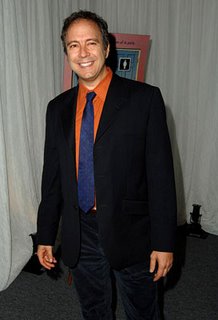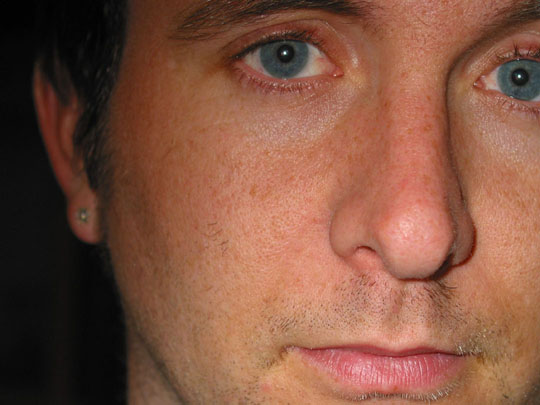
TUCKERED OUT
The low budget film Transamerica, due out on DVD in May, tells the story of a preoperative transexual woman (Felicity Huffman) who travels cross-country with her newly discovered son. A few months before he walked the red carpet at the Oscars with dream date Dolly Parton, writer/director Duncan Tucker discussed the movie with me during the 2005 Portland Gay & Lesbian Film Festival.
Me: How did Transamerica come about?
Duncan Tucker: A woman I knew in Los Angeles told me while I was thinking of the idea for this movie that she was transgendered. She told me what was under her skirt and I had no idea. But the funny thing is, that isn’t the genesis for the movie. What’s subversive about this movie is that although the main character happens to be a transsexual woman, it’s not a movie about transsexuality. It’s a celebration of a life. It’s about family and connection. It’s about what it feels like to be different and alone and the journey towards self-acceptance. It’s also a kind of coming-of-age movie. And, I hope, it’s a lot of fun and surprising.
Nobody wanted to finance this movie. They thought it was too risky and uncastable and everybody thought it should be a guy in a dress. If you’ve met trans women after they’ve been on hormone therapy for a few years - not to mention if they’ve had facial feminization surgery- they don’t look like guys in dresses. I always knew I had to honor where this character was going and not anchor her in what she was leaving behind by casting a guy. But people didn’t believe that was doable. Felicity was just amazing.
Me: What kind of research did you do for the film?
DT: I read tons of books. I had some difficulty meeting with women and men in the transsexual community. Many - especially those who can pass so well that nobody knows they used to be of a different sex – were very difficult to meet because they’re self-protective with a reason. They can lose friends, they’ve lost families, they can lose jobs, and they can be physically in danger. Slowly through networking and grapevining I started meeting some really brave women who shared their stories with me.
There were certainly some who were more politicized and suspicious, but I think in the end all of them came to respect the project. Before we shot I actually had Riki Wilchins, the executive director of the Gender Public Advocacy Coalition, read the script. It passed muster I’m happy to say.
Me: Are there any autobiographical aspects to the story?
DT: There’s one character in the movie, only one, who is based on a real life human being. And that’s Fionnula Flanagan’s character, who is my mother. My mom has seen the movie and she’s so proud. She says “That’s me!”
Me: Do you think of Transamerica as a comedy or a drama?
DT: Some people occasionally see it and think it’s so sad. I’m flattered by this because they’re with the characters emotionally. But ultimately I think of it as a comedy because it’s joyous. Maybe it doesn’t end up with everyone living happily ever after, but they might be one day.
It’s a celebration of life. To survive Bree has had to wall off her heart like so many of us who’ve been hurt in life. We construct these defenses and remove ourselves from emotion in some ways.
Bree is very intelligent but in terms of emotional intelligence and her ability to relate to people she scores practically a zero on the IQ scale. She just doesn’t know. She’s never been good at that before. But I think she’s going to learn.


0 Comments:
Post a Comment
<< Home